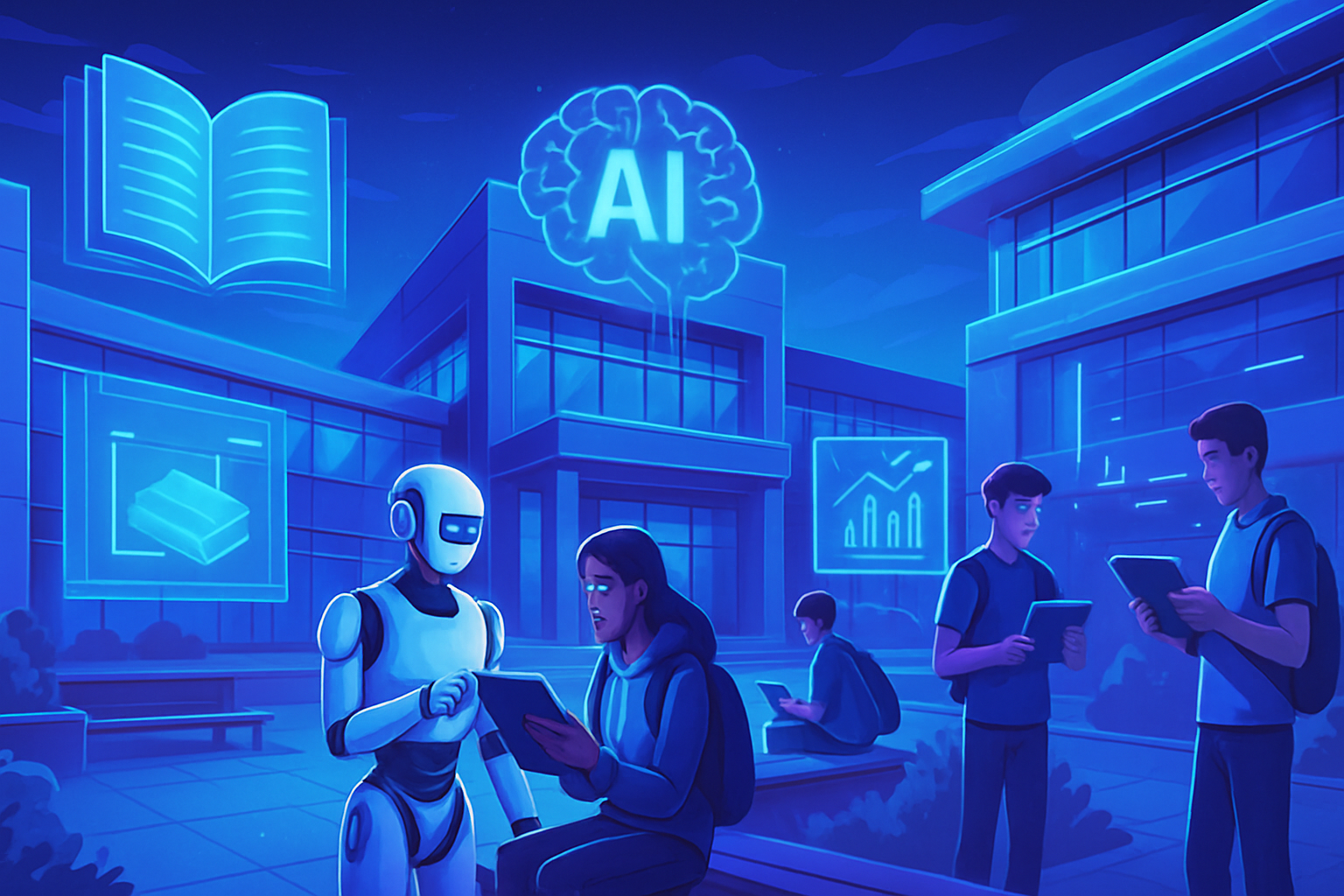The impact of artificial intelligence on higher education poses a real educational challenge. The growing use of generative intelligence tools like ChatGPT disrupts traditional learning methods. Students, in search of ease, often misuse these technologies, engaging in practices that are not conducive to intellectual growth.
The risk of a standardized education devoid of critical reflection looms. Work based on superficial understandings compromises creativity and analysis. At a time when education must adapt to this digital revolution, a thorough examination of the benefits and drawbacks of AI is imperative.
The impact of artificial intelligence on higher education
Artificial intelligence (AI) systems, such as generative language models, raise increasing concerns within institutions of higher education. Educators observe that tools like ChatGPT upend traditional teaching methods. Far from facilitating learning, these technologies can degrade the quality of education and hinder the development of critical thinking in students.
A critical perspective on AI in education
Relying on mastering AI tools as an essential skill for future professional life proves to be a nuanced vision. Too often, students use these technologies as a means to accelerate their research without genuine reflection. This shortcut does not support the cognitive enrichment necessary for a deep understanding of the subjects studied.
The challenges faced by universities
Universities struggle to implement effective guidelines and standards in the face of widespread use of AI. Many students turn to ChatGPT for their assignments, thereby circumventing academic recommendations. Such practices promote the production of generic, often erroneous content that undermines the intellectual rigor demanded by academia.
Significant examples of failures
A recent study asked students about a short article by Henry Ford, written in 1922. The collected responses revealed a distorted conception of Ford’s historical value, presenting erroneous assertions such as his role as a “transformational leader” and the establishment of an advanced performance management system. These examples demonstrate the inability to conduct a critical analysis of source materials.
Consequences for creativity and critical thinking
The omnipresence of language models in the educational process threatens the development of creativity. Students, immersed in passive consumption of AI-generated content, neglect personal exploration and deep reflection. As a result, fundamental skills such as critical analysis and innovation lose their significance.
A more nuanced approach is necessary
The debate around AI in the educational field requires a less celebratory and more skeptical approach. Simplifying the challenges related to the integration of AI can lead to pitfalls. Academic institutions must rethink their strategies to improve teaching without compromising the quality of learning.
The future of higher education in the face of technological changes
Universities must adapt to current technological developments while maintaining the integrity of their educational mission. All actors in the academic field have the responsibility to reflect on the profound impact of AI on teaching. Future professionals, equipped with AI skills, must also possess keen critical thinking, ensuring an enlightened society.
In the face of these issues, the need for a well-defined framework on the use of AI tools in education is paramount. This framework should encourage intellectual honesty and the pursuit of truth while integrating technological tools thoughtfully. The future of education will depend on the ability to balance academic tradition and technological innovations.
To this end, various articles discuss the importance of AI in the educational and professional journey, as mentioned in these studies: the era of user experience in the face of AI, AI in technological acquisition strategies, or smart manufacturing and its skill requirements. These reflections will illuminate the future path in a world where artificial intelligence plays a predominant role.
Other articles, such as the impact of AI on web design and OpenAI and AI-driven film production, illustrate this necessity for critical adoption across different facets of emerging technologies.
Frequently Asked Questions on the Impact of Artificial Intelligence in Higher Education
What are the main challenges posed by artificial intelligence in higher education?
The main challenges include the risk of student dependency on AI tools, decreased critical reflection and analysis, as well as the possibility of obtaining generic and sometimes incorrect results.
How can the use of AI affect students’ skill development?
Excessive use of AI can hinder the development of essential skills, as students tend to favor quick solutions over developing their own analytical and research capabilities.
In what ways does AI harm traditional learning in universities?
AI can counter traditional learning by replacing critical methods, such as reading original works, with generated responses that lack depth and intellectual engagement.
Should universities integrate AI tools into their teaching programs?
While the integration of certain AI tools can be considered, it is crucial to carefully assess their impact on learning and ensure they do not compromise the quality of education.
What types of AI-generated content could be problematic for students?
AI-generated content is often generic, unengaging, and may contain factual inaccuracies, which can mislead students if they rely on this information for their studies.
What measures can be taken to counter the negative effects of AI in education?
It is essential to establish clear guidelines for the use of AI, promote the importance of research and critical analysis, and encourage students to engage with source material.
How can students avoid falling into the trap of abusing AI?
Students should be made aware of the importance of developing their own learning skills and avoiding reliance on AI tools for simplistic solutions.
What important message should be remembered regarding AI and higher education?
It is crucial to adopt a skeptical approach towards the use of AI in education to preserve academic integrity and ensure that learning remains a rewarding and meaningful experience.






